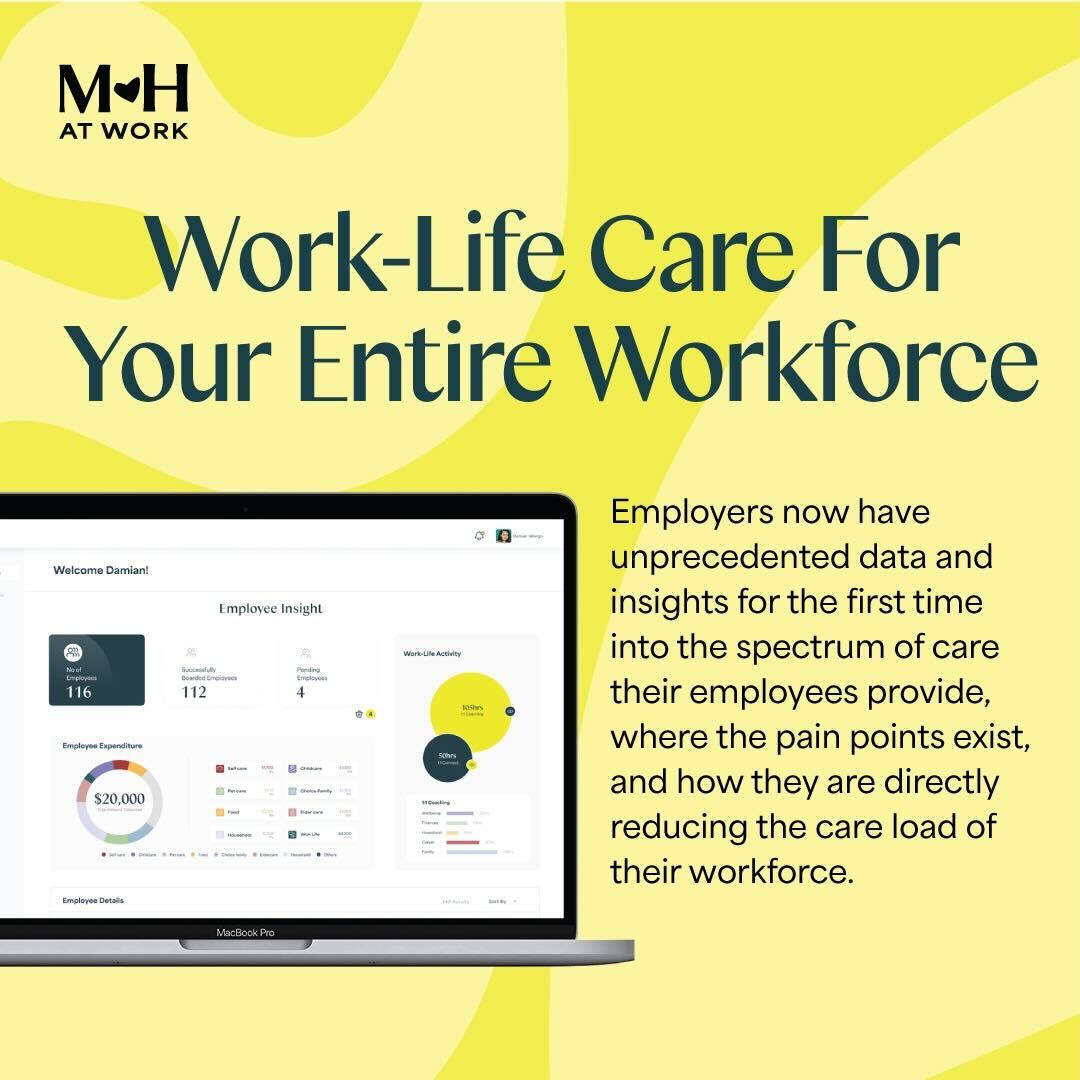Care Crunch: Don't Fall for the 'Family-Friendly Workplace' Fake-Out
How to spot a company that actually cares about caregivers.
Shortly after my son was born, I accepted a new job. It was marketed as “family-friendly,” since I was able to work from home three days a week. But I had to breast-pump in a bathroom when I was at the office, and I was given so many assignments I began working 50 hours a week to keep up.
Family-friendly, it was not. I quit.
Looking back, there were warning signs I should have heeded—namely, none of the company’s 40+ employees were moms of young children.
Though my experience took place before the pandemic, in many ways it feels similar to today’s hybrid workplace, where some employers are touting their new “mom-friendly” benefits without keeping tabs on how many moms are actually staying and succeeding at their companies.
I don’t want to minimize these new policies—they have allowed many moms to stay in the workforce and blunted the impact of the pandemic on women’s progress overall. Two-thirds of employees are able to work from home more now than they were pre-pandemic. Many employers also expanded their benefits over the last couple of years, offering more paid leave, child care assistance, mental health support and more.
However, family-friendly benefits don’t always lead to family-friendly workplaces, especially if a company’s overall culture doesn’t encourage employees to have a life outside of work. If an organization’s leaders value face time over efficiency, hold way too many meetings, or expect their employees to maintain a punishing pace for months at a time, it’s not a family-friendly workplace. (It’s also a workplace that’s begging for employee burnout and attrition.)
Unfortunately, there are worrying signs that the American tendency towards overwork—blunted by lingering labor shortages—is starting to sneak its way back into office culture. Just look at Elon Musk’s takeover of Twitter. In some of his first moves at CEO, the business magnate made employees return to the office full-time and pledge to work “long hours at high intensity.” He even added beds to the company’s San Francisco office, so employees could remain at the office around the clock. Musk has a reputation for being a demanding employer, but there are signs other tech CEOs are following his lead. Since the tech industry is often a trendsetter when it comes to workplace norms, the renewed emphasis on around-the-clock job devotion isn’t a good sign for parents who want work-life balance.
It also means it’s getting harder to find workplaces that aren’t just family-friendly on paper, but also in practice. That’s why we asked Charles Bonello, CEO & co-founder of child care provider Vivvi, for his best tips to determine if a company truly cares about caregiving employees. Here’s what to look for:
The Fix: 3 Ways to Tell If a Company is Committed to Supporting Caregivers
By Charles Bonello, CEO & Co-Founder, Vivvi
Despite whispers of an impending recession, the economy is continuing to add jobs, and it’s still very much a parents’—and more specifically a mothers’— market. Women in the workforce are switching jobs at a record pace, leaving companies scrambling to try to keep the women leaders they have or hire others to bolster their ranks. Many companies are adding a flurry of new benefits in an effort to tempt caregivers and check the “family-friendly” box during the interview process. But not all family-friendly benefits are created equal.
For caregiving job-seekers, the temptations vary widely, from workplace flexibility to mental health benefits to fertility support. But substantive child care support is still far from the norm at most employers; a recent report shows that gym memberships were a more common offering than sponsored or subsidized child care or backup child care.
Before you sign on the dotted line at your exciting new job, dig a little deeper into whether your potential employer is actually supporting caregivers. Here’s a few indicators:
They offer child care benefits that serve your needs. While many employers offer some form of caregiving support, their definition of that support may not be the same as yours. Ask about specific benefits that support caregivers at every point in their journey, from infancy to elder care. A company that’s invested in the marathon of caregiving—not just the sprint of pregnancy or postpartum—is one that will engender true loyalty from working parents.
They have parents in leadership roles. Representation matters, and the makeup of the leadership team speaks volumes about who can—or can’t—be successful at that company. Working parents are often each other’s greatest advocates, and when they’re in a position of power, they have the ability to create change that benefits parents across the organization.
They have a culture of care. That may be an employee resource group, flexible work policies, remote options or even a commitment to employees’ mental health. Even if a company doesn’t offer child care as a benefit (yet!), these investments are often a sign that a company sees its employees as more than just a number, and will likely be more empathetic to the needs of working parents.
Thinking about jumping ship to find an employer that values caregivers? Try asking your employer about caregiving benefits before you go. This tip sheet will help you advocate for your caregiving needs with your manager or HR department.
JOIN US TODAY!
If you’re feeling stressed from a lengthy to-do list and the financial pressures of the holiday season, don’t miss today’s FREE virtual event with Fidelity and Tula. We’ll provide plenty of tips for managing the chaos and making sure you feel merry, too. Register here!
INTRODUCING OUR NEW WORK-LIFE WALLET!
Stop wasting money. Redirect cash from ineffective EAP programs and directly empower your employees to meet their unique work-life needs. With Mother Honestly’s NEW work-life wallet, employees can access support for an array of work-life needs, including child care, elder care, pet care, self care, household chores and more. Employees link their debit card or bank account, and we screen and qualify work-life related expenses for reimbursement within seconds. Learn how your company can support caregivers with our Work-Life Wallet!
LOVE TO SEE IT
Pay transparency picks up pace. By 2023, 20% of workers will be covered under pay transparency laws, requiring companies to disclose compensation information. And more states are considering passing pay transparency measures. Experts say the laws will help ensure pay equity between workers.
HATE TO SEE IT
The childhood mental health crisis is getting worse. Rates of adolescent depression and anxiety are increasing, exacerbated by the isolation of the pandemic. But even with federal relief money available, many schools are struggling to find and hire licensed providers.
The latest shortage? Tylenol. Supplies of pediatric formulations of liquid acetaminophen and ibuprofen have become scarce in many places, amidst a surge of sick kids swamping pediatrician’s offices and hospitals.







